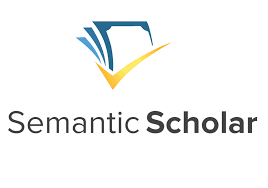Artificial Intelligence and International Peace and Security
DOI:
https://doi.org/10.69760/aghel.02500205Ключевые слова:
Artificial İntelligence, Peace, International Security, Diplomacy, CyberАннотация
The use and benefit of technology and scientific advances, including new technologies, has always been considered one of the fundamental human rights. One of these new technologies is artificial intelligence technology. In this article, which was conducted using a descriptive-analytical method and using library resources and texts and with the aim of examining and analyzing artificial intelligence and international peace and security, the following questions are raised: How is international peace and security affected by artificial intelligence technology?
What challenges does artificial intelligence create for international peace and security? And what solutions can be proposed in this regard? The results of the research, which were in line with the research hypotheses, are that artificial intelligence is an influential and comprehensive field whose scope is not only related to technical and engineering issues, but also encompasses the fields of humanities, especially international peace and security, and artificial intelligence creates challenges for international peace and security, the most important of which is the growth of the use of this technology in the military field, which can lead to the production of deadly and uncontrollable robotic and automated weapons.
Also, cyber warfare using artificial intelligence can pose a serious threat to international peace and security. Accordingly, it is necessary to conclude new international agreements and conventions to contain its negative effects.
Библиографические ссылки
Bjola, Corneliu (2020), “Diplomacy in the Age of Artificial Intelligence”, Emirates DiplomaticAcademy.https://www.realinstitutoelcano.org/en/analyses/diplomacy-in-the-age-of-artificial-intelligence, Retrieved: October 12, 2021.
Brundage, S. Avin& et al. (2018), “The malicious use of artificial intelligence: Forecasting, prevention, and mitigation authors are listed in order of contribution design direction”, Future of Humanity Institute. Retrieved: September, 22, 2020.
Ekram Yawar, M., & Amani, A. (2025). Features of international trade contract. Acta Globalis Humanitatis Et Linguarum, 2(1), 276-296. https://doi.org/10.69760/aghel.02500137
Ekram Yawar, M., & Qurban Hakimi, M. (2025). Analysis and review of research in the field of medical ethics in the international arena. Global Spectrum of Research and Humanities , 2(2), 3-17. https://doi.org/10.69760/gsrh.01012025009
Ekram Yawar, M., & Qurban Hakimi, M. (2025). The Impact of Artificial Intelligence Technology on Human Resources Performance in Organizations . EuroGlobal Journal of Linguistics and Language Education, 2(1), 96-108. https://doi.org/10.69760/egjlle.2500013
Ekram Yawar, M., & Qurban Hakimi, M. (2025). The Impact of Robots and Artificial Intelligence on Human Resources in the Future. Global Spectrum of Research and Humanities , 2(1), 87-97. https://doi.org/10.69760/gsrh.010120250014
Galtung, J. (1996). Peace by peaceful means: peace and conflict, development and civilization. Sage Publications.
Gavrilovic, Andrijana (2018), “Algorithmic diplomacy: Better geopolitical analysis? Concerns about human rights?” https://www.diplomacy.edu Retrieved: July 26. 2020.
Kazemi, Seyyed Ali Asghar (2000), Book, The Seven Pillars of Politics. Tehran: Name of the publisher, distributor and non-target publisher of Islamic Culture. For access: https://tinyurl.com/4kb4dftn
Magdin, Radu (2019), “The Great Game, Through an AI Lens”. https://www.usnews.com. Retrieved: July 8, 2020.
Mintz, Alex & Karl DeRouen (2010), Understanding Foreign Policy: Decision Making, Londin: Cambridge University Press.
Mostafavi Ardebili, Seyyed Mohammad Mehdi; Taghizadeh Ansari, Mustafa; Rahmatifar, Samaneh (2023), “The Impact of Artificial Intelligence on the International Human Rights System”, Publication Place: Bi-Quarterly Journal of New Technologies Law, Volume: 4, Issue: 8. To access: https://civilica.com/doc/1779765/
Movahedian, Ehsan (2019), “Artificial Intelligence; A Technological Threat to International Peace and Security”, Publisher: Abrar Moasar Institute for International Studies and Research, Iran. For access: https://tisri.org/?id=94l7ixyu
Nozick, Rober. (1974). Anarchy, State And Utopia, Oxford: Basil Balckwell.
Raha Kharrazi Azar (2013), “Cyber Diplomacy in the Modern Intelligent Media Environment”, Publisher of the Media Quarterly, Media, 24th Year, Spring 2013, No. 1 (90th Consecutive Issue). For access: https://tinyurl.com/3wnh7tta
Scott, BenStefan , Heumann & Philippe Lorenz (2018), “Artificial Intelligence and Foreign Policy”.Stiftung Neue Verantwortung Policy Brief, Available at SSRN: https://ssrn.com/abstract=3103961, Retrieved: may11, 2020.
Singh Gill, Amandeep (2019), “Artificial Intelligence and International Security: The Long View”, Ethics & International Affairs; New York, Vol. 33, Iss. 2, 169-179. DOI:10. 1017/S0892679419000145.
Somayeh Khodakhah Azar T, Masoud Mousavi Shafaei, Mohammad Reza Tajik, Mohsen Eslami (2022). Genealogy of the Liberal World Order: Analyzing the Trajectory of Power (Ministry of Science Scientific Paper)World Politics Publisher Volume 11 Winter 2022 Number 4 (Serial 42) 221 - 258. For access: https://tinyurl.com/2p9u6xtd
Unver, Akın (2017), “Computational Diplomacy: Foreign Policy Communication in the Age of Algorithms and Automation”. The Centre for Economics and Foreign Policy Studies (EDAM): https://edam. org. tr/en. Retrieved: 20/8/2020.
Weiss, Charles (2015), “How do science and technology affect international affairs?”, Minerva, 53, (4)
Zargarbashi; Seyyed Ruhollah Haj Ehsan Movahdian (2018), Cyber Diplomacy of the US Government; The Impact of the US Department of State Facebook Page on Iranian Users' Attitudes Towards Iranian Society. Publisher: New Media Studies. Volume 4, Issue 15, November 2018, Pages 73-112/ For access: https://journals.atu.ac.ir/article_9161.html
Загрузки
Опубликован
Выпуск
Раздел
Лицензия
Copyright (c) 2025 Acta Globalis Humanitatis et Linguarum

Это произведение доступно по лицензии Creative Commons «Attribution-NonCommercial» («Атрибуция — Некоммерческое использование») 4.0 Всемирная.







